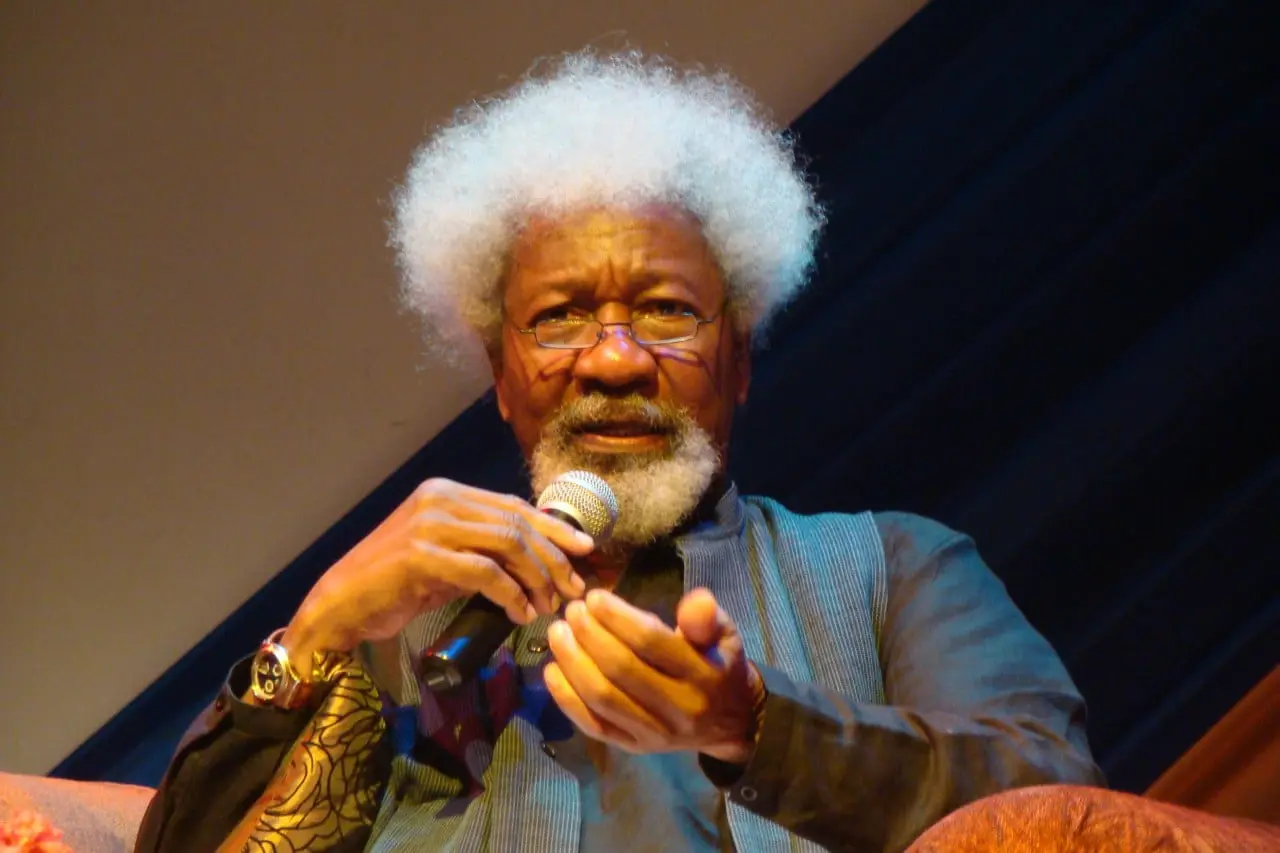Nobel Laureate, Professor Wole Soyinka, has strongly criticised the ban imposed by the National Broadcasting Commission (NBC) on a protest song by Nigerian musician Eedris Abdulkareem, describing it as a disturbing return to censorship and an attack on freedom of expression.
In a statement released on Sunday from New York University, Abu Dhabi, Soyinka expressed concern over the implications of the action, drawing parallels with past efforts to silence dissenting artistic voices in Nigeria.
“Courtesy of an artist operating in a different genre – the cartoon – who sent me his recent graphic comment on the event, I learnt recently of a return to the culture of censorship with the banning of the product of a music artist, Eedris Abdulkareem,” Soyinka stated.
In a tone laced with irony, he suggested the move did not go far enough, saying, “It is not only the allegedly offensive record that should be banned – the musician himself should be proscribed. Next, PMAN, or whatever musical association of which Abdulkareem is member, should also go under the hammer.”
Though he admitted he had not listened to the banned track, Soyinka argued that the issue was not about the song’s content but about upholding a core democratic principle.
ALSO READ
“It cannot be flouted. That, surely is basic. This is why I feel that we should look on the bright side of any picture and thus recommend the Aleshinloye cartoon – and others in allied vein – as an easy-to-apprehend, easy-to-digest summation of the wisdom of attempting to stifle unpalatable works of art or socio-political commentary,” he said.
He also highlighted the paradox of censorship, suggesting that the ban may actually work in the artist’s favour.
“The ban is a boost to the artist’s nest egg, thanks to free governmental promotion. Mr. Abdulkareem must be currently warbling his merry way all the way to the bank. I envy him,” Soyinka added.
Soyinka further warned that such censorship risks damaging democratic growth, calling it “subversive of all seizures of the fundamental right of free expression.”
“We have been through this before, over and over again, ad nauseum. We know where it all ends. It is boring, time-wasting, diversionary but most essential of all, subversive of all seizures of the fundamental right of free expression,” he said.
He cautioned that actions like these give authorities the confidence to suppress opposing views, saying it fosters “a permissive atmosphere of trickle-down power.”
Broadening his remarks to other issues in Nigeria, Soyinka condemned the recent lynching of 19 young people in Edo State.
“My heart goes out to friends, colleagues and families of victims and traumatised survivors of this senseless slaughter. Our thirst for justice must remain unslaked,” he said.
He also referenced the 2022 killing of Deborah Samuel in Sokoto and the impunity that followed.
“Identified killers were set free to gloat, and paste their photos on the Social Media… in full daylight glare, in the presence of both citizen voyeurs and security forces,” he said.
Soyinka stressed that without accountability, such atrocities will continue, adding, “as long as the culture of impunity is given the sheerest strain of legitimacy in any given cause, such gruesome assaults on our common humanity will continue to prevail.”
He concluded by urging the regulatory agency responsible to reverse what he called an act of “petulant irrationality,” warning that any government that only embraces praise-singers is on a dangerous path.
“A government that only tolerates praise-singers has already commenced a downhill slide into the abyss,” he said.
